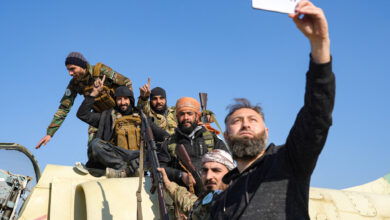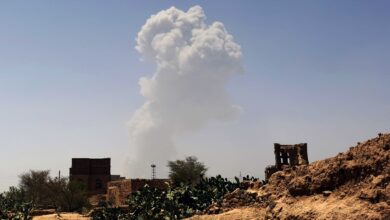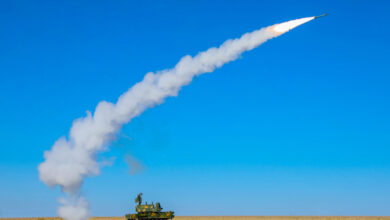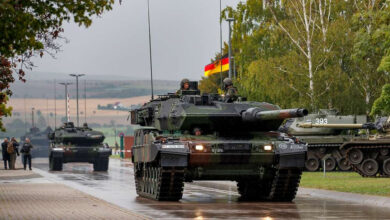10 Yemeni Troops Killed as New Fighting Clouds Peace Efforts
At least 10 soldiers were killed in renewed fighting in Yemen, military sources told AFP on Wednesday, despite diplomatic efforts to halt the long-running war in the Arab world’s poorest country.
The clashes took place in oil-producing Marib province, one of the main battlegrounds and the scene of sporadic fighting even during a lull in hostilities over the past year.
Eight years of war have left hundreds of thousands dead, through direct and indirect causes, and triggered one of the world’s worst humanitarian crises.
Iran-backed Houthi rebels attacked a mountainous area and have been engaged in a build-up of forces in the region, two military sources told AFP.
“The Houthis launched an attack on hills overlooking Harib district, south of Marib, and made progress on that front, causing the displacement of dozens of families,” one of the sources said, speaking on condition of anonymity.
“At least 10 soldiers were killed, in addition to an unknown number of attackers,” the source added. The details of the clash were confirmed by a second military official.
The fighting comes a month after at least four soldiers were killed in the same district, and dents new optimism after Saudi Arabia and Iran, who back opposing sides in what amounts to a proxy war, agreed to restore diplomatic ties.
Analyst Maged Al-Madhaji, commenting on the latest fighting, said “the Houthis are interested in sending a clear political message that… the Tehran-Riyadh deal does not mean” the rebels will just surrender.
“The Houthis lean more towards the option of a military confrontation than current negotiations,” said Al-Madhaji, the co-founder of the Sanaa Center for Strategic Studies think tank.
‘Moment of Opportunity’
An exchange of hundreds of prisoners was agreed this week and Hans Grundberg, the UN secretary general’s special envoy for Yemen, has said “intense diplomatic efforts” are underway to strike a peace deal.
The Houthis seized control of Yemen’s capital Sanaa in 2014, prompting a Saudi-led military intervention the following year.
A UN-brokered ceasefire that took effect last April brought a sharp reduction in hostilities and, even though the truce expired in October, fighting has largely remained on hold.
On Monday, after talks in Switzerland, the Houthis and Yemen’s internationally recognised government agreed to exchange 887 prisoners — 181 held in Houthi prisons and 706 rebels.
During a Security Council meeting last week, UN officials said the detente between Saudi Arabia and Iran — welcomed by both the Houthis and the Yemeni government — should offer momentum toward peace.
However, it is unlikely to solve all Yemen’s problems. The influence of the two regional powers is only one dimension of a complex conflict in a country fractured along confessional, regional and political lines, analysts warn.
Also on Wednesday, 141 NGOs in Yemen issued a joint open letter urging the warring parties to reach a truce and move towards an “inclusive Yemeni peace process.”
“We call on you to ensure that this moment of opportunity grows into lasting peace and promise for the people of Yemen,” said the letter, whose signatories included Oxfam, Save the Children, and CARE International.












